Ethiopia. The Circus, Art that Gives Dignity.
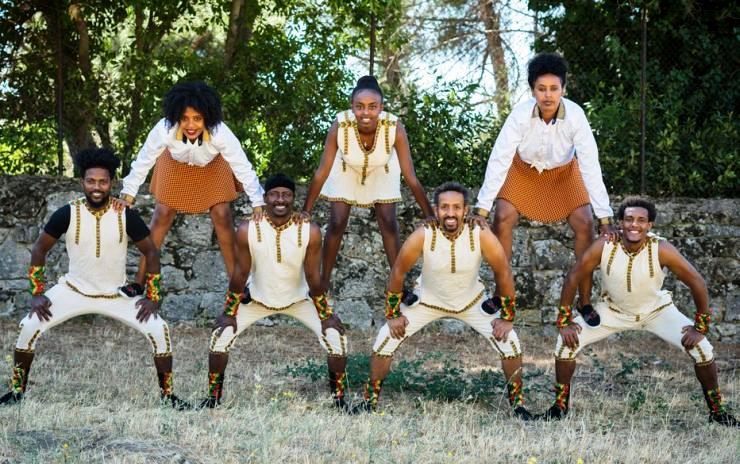
Through circus art, Kine Circus helps boys and girls in danger of exclusion to find themselves and have a life plan.
“Kine in Amharic has several meanings, including ‘secret’. With our art, we try to convey a message. We talk about the problems that surround us and how to solve them, using the language of the circus, which acts as a social transformer. This is the ‘secret’ of this art”, explains Shimelis Getachew, actor, director, clown and founder of Kine Circus, together with Eyob Teshom. He continues: “Kine Circus was started two years ago in Addis Ababa (Ethiopia) to give a concrete response to the many boys and girls in danger of exclusion. For them, we used a department store inside the Zoma Museum complex, an open space on the outskirts of the city frequented by minors interested in the circus, with special needs or with no fixed abode”.
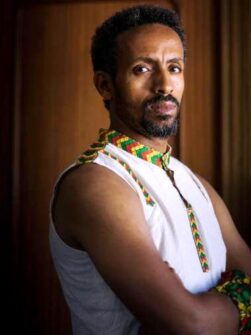
Shimelis Getachew, actor, director, clown and founder of Kine Circus. (Photo: Javier Sánchez Salcedo).
Getachew points out: “We want it to be a home for them. The intention is not for children to simply learn coordination, balance, and expressiveness through circus techniques, but for them to have a protected space where they can talk about things that happen to them”.
Kine Circus is the result of a previous project, Fekat Circus, which brought together nearly 600 children. After 17 years, Fekat disbanded, partly because some of its artists became professionals and went to work in countries like France or Germany, and partly because local authorities took away its spaces because they wanted to create an area for commercial and industrial activities. Consequently, some former Fekat members decided to find a new place and start a new project.
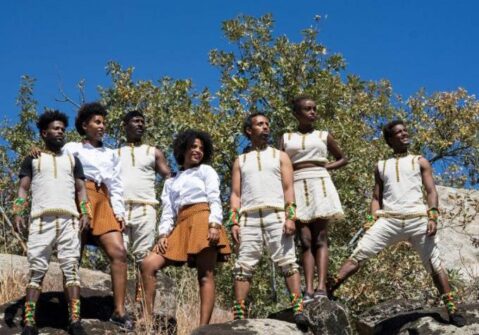
Kine Circus members. (Photo: Javier Sánchez Salcedo)
We ask Shimelis how the circus can possibly change someone’s life. “In Addis Ababa, there are no activities for children who are on the street or live in broken families and have problems such as the use of khat or glue”, Shimelis replies.
“The circus has many things that can benefit them. They learn to care for each other, to trust, to communicate, to develop mental and physical skills and to stay safe from addictive substances”.
Kine Circus members also work with children admitted to the hospital in Addis Ababa. “With the ‘Doctors with Smile project’ we help children to laugh and have fun and forget their illness for a while”, says Shimelis.
Recently some members of the circus have been working a lot with children with autism. “We had no experience of working with autistic children. We started and saw that the effect the circus has on them is wonderful. Children with autism are integrated and participate in the activities together with the rest of the children. Each has their own challenges, and everyone forms an equal part of the project, under the motto ‘I help you and you help me’.
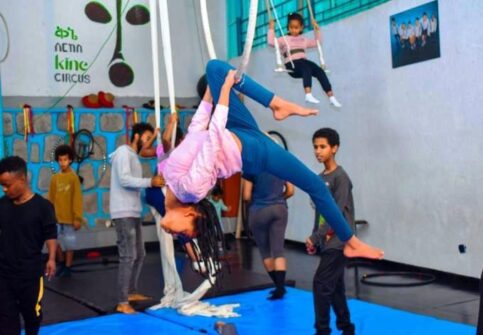
“We want it to be a home for them” (Photo Kine Circus)
With some of them, what is being worked on is overcoming the trauma. There are boys and girls who have gone through terrible experiences living on the street and who express hysterical emotions when they are in a group”.Shimelis and the rest of the performers know how to accompany them. They tell us: “To do a stunt I have to count on you being by my side and helping me. For a child used to living in distrust, the idea that ‘you will not let me fall’ is something new. Furthermore, they also realise that they deserve a better life. They deserve to be taken to the doctor. They deserve to be on tour. There are boys and girls who, when they enter the project at the age of eight or nine, are full of emotions. But there they find a group of people who help them break free, they start going to class and taking care of themselves.
They wash their hands, sit, and take their food and talk about their problems. They make a great effort to succeed in a place where they feel protected and safe and know they can make it. A transformation takes place in their lives”.
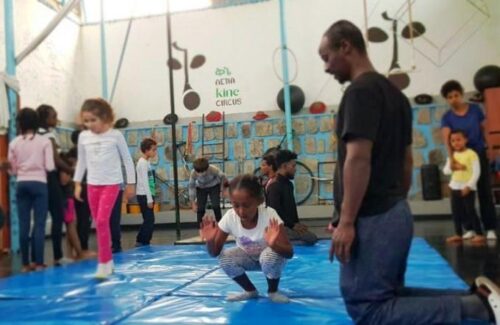
“They learn to care for each other, to trust, to communicate, to develop mental and physical skills” (Photo Kine Circus)
In Ethiopia, the circus is not highly regarded and receives no government support, Shimelis complains. “In football, Ethiopia always loses, but it is a sport that is supported. On the other hand, there are very good circus artists all over the world, and they are not appreciated”.
Shimelis recalls that Fekat Circus once performed in 2018 at the last edition of the Rototom festival, in Benicasim. They had their show on the big stage in front of more than 10,000 people, but it had no repercussions in the Ethiopian media. Instead, the media talked about an Ethiopian singer performing at the same festival, on a small stage, in front of 500 spectators. “The Ethiopian Ministry of Tourism does not believe that our culture can be expressed through the circus. There is still a lot to do”, adds the artist.
Shimelis concludes: “The circus is my life. As a child, my dream was to make films. I worked as an actor and directed two films. But the circus always calls me. And now I have left everything to dedicate myself to this project. Because what I want is to help, and through the circus, it is very easy to reach people”. (Open Photo: Javier Sánchez Salcedo)
Javier Sánchez Salcedo



